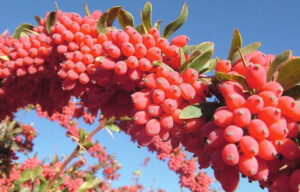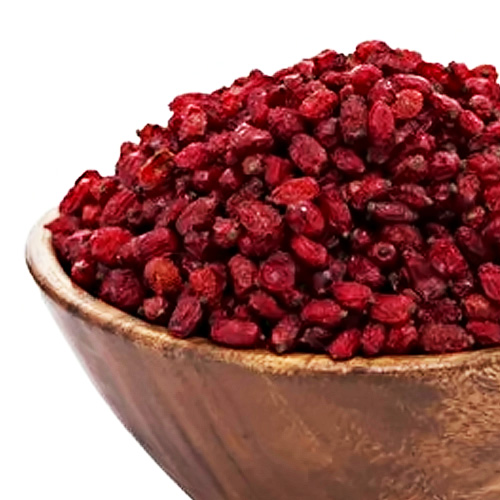
Barberry puff pastry
This type of product is marketed about three to six months after the first harvest of barberry from the tree,...
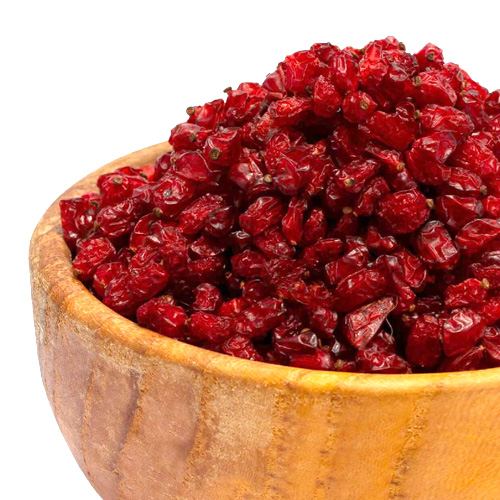
Barberry pomegranate seeds
This type is produced in the first harvest season, ie October, in such a way that farmers separate barberry seeds...
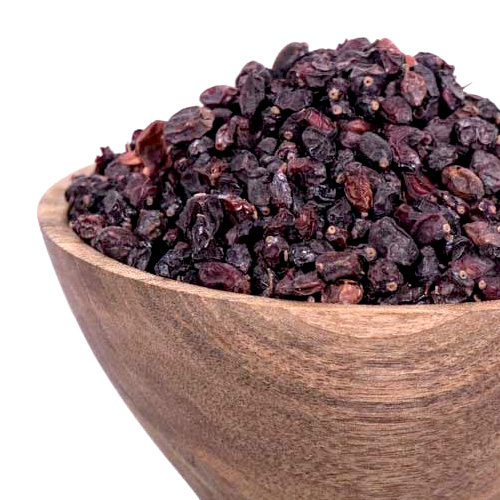
Mountain barberry
This type of barberry grows in the mountains. Barberry is a car that is found in mountainous, forested and humid...
The end of spring and the beginning of summer is the flowering season of barberry, the yellow buds of barberry turn cherry red in autumn.
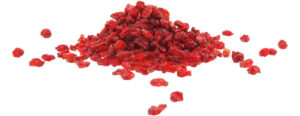 Barberry is native to temperate and subtropical regions of Europe, Asia, Africa, North America and South America. Iran is the largest producer of barberry in the world, among which South Khorasan province, with nearly 97% of the land under cultivation of this product, produces 95% of the world barberry.
Barberry is native to temperate and subtropical regions of Europe, Asia, Africa, North America and South America. Iran is the largest producer of barberry in the world, among which South Khorasan province, with nearly 97% of the land under cultivation of this product, produces 95% of the world barberry.
Properties of barberry
European barberry has always been respected for its medicinal properties. Wild barberry, which is known to treat a range of ailments ranging from digestive problems to liver problems, is rich in nutrients. Barberry also contains a unique compound called berberine that fights bacteria and viruses. Barberry is rich in a variety of B vitamins that are essential for the general health of the body. A serving of barberry is rich in antioxidants that fight free radicals and reduce the risk of premature aging.
Berberine contains living tissue and is extracted from a variety of plants, including a group of plants called berberine.
What is the significance of Berberine? Berberine has been shown to inhibit bacterial growth and reduce inflammation. Since inflammation is the root of many chronic diseases, it has a significant impact on human health.
Barberry extract has beneficial effects on the cardiovascular system and nerves. Studies show that barberry contains high levels of antioxidants and thus helps prevent cancer.
Fight against pollution
Numerous studies show that barberry, which contains barberry, has significant antimicrobial and antifungal properties. It helps protect the body against many bacterial infections by limiting the ability of bacteria to attach to human cells.
Berberine is used to eliminate a wide range of inflammations and infections in the body. Berberine helps the bladder, urinary tract and digestive tract. Berberine also helps relieve common respiratory illnesses such as sore throat, nasal congestion, sinusitis and bronchitis.
Helping the digestive system
Berberine has a positive effect on the smooth muscles of the intestine and improves digestion and reduces gastrointestinal pain. Berberine is an effective treatment for diarrhea. This positive effect is effective on both transient diarrhea and diarrhea caused by poisonous foods.
Few studies show that berberine cures digestive problems faster than antibiotics, and this is most likely due to its low acidity. Studies such as those published in the Journal of Infectious Diseases show that berberine kills bacterial diarrhea without any side effects.
Preventing and helping to cure diabetes
Anti-diabetic property is another property of barberry. The fact that barberry has a positive effect on blood sugar has made it a unique choice to prevent and cure diabetes.
Improving heart health
This property of barberry includes its effectiveness in improving blood pressure, ischemic heart disease, cardiac arrhythmias and cardiomyopathy.
Atrial fibrillation is an irregular heartbeat that often increases the heart rate and leads to poor blood flow. Alternative therapies, including yoga, acupuncture, and the addition of herbs such as barberry, have been shown to be very effective in treating atrial fibrillation.
The active berberine alkaloid barberry activates a biochemical action in the heart that improves atrial fibrillation. Although the benefits of berberine in atrial fibrillation have not been systematically studied in human clinical trials, its acceptance as a principle in the treatment of atrial fibrillation remains limited.
Barberry lowers cholesterol and triglycerides, which is good for heart health and overall well-being.
Prevention of metabolic syndrome
Metabolic syndrome is a metabolic disorder that involves a combination of at least three of the following problems
Cleansing the liver and gallbladder
Cleansing the liver and gallbladder is another important benefit of barberry. The liver detoxifies the blood, produces the bile needed to digest fat, breaks down hormones, and stores the vitamins, minerals, and iron the body needs.
Barberry improves bile secretion. Due to the effect of barberry on improving bile secretion, this fruit is considered to be excellent for liver and gallbladder health and leads to lowering bad cholesterol (LDL).
Nutritional value of barberry
Barberry contains vitamin B and is a rich source of vitamin C and contains minerals such as zinc and thiamine. Barberry is a powerful antibiotic that kills bacteria and fungi due to its variety of elements and chemicals such as alkaloids and isoquinoline.
100 grams of barberry contains the following nutrients:
316 calories,
3.6 grams of protein,
63.9 grams of carbohydrates,
27.2 grams of sugar,
3.5 grams of fat,
7.4 grams of dietary fiber,
And 24 mg of vitamin C.


